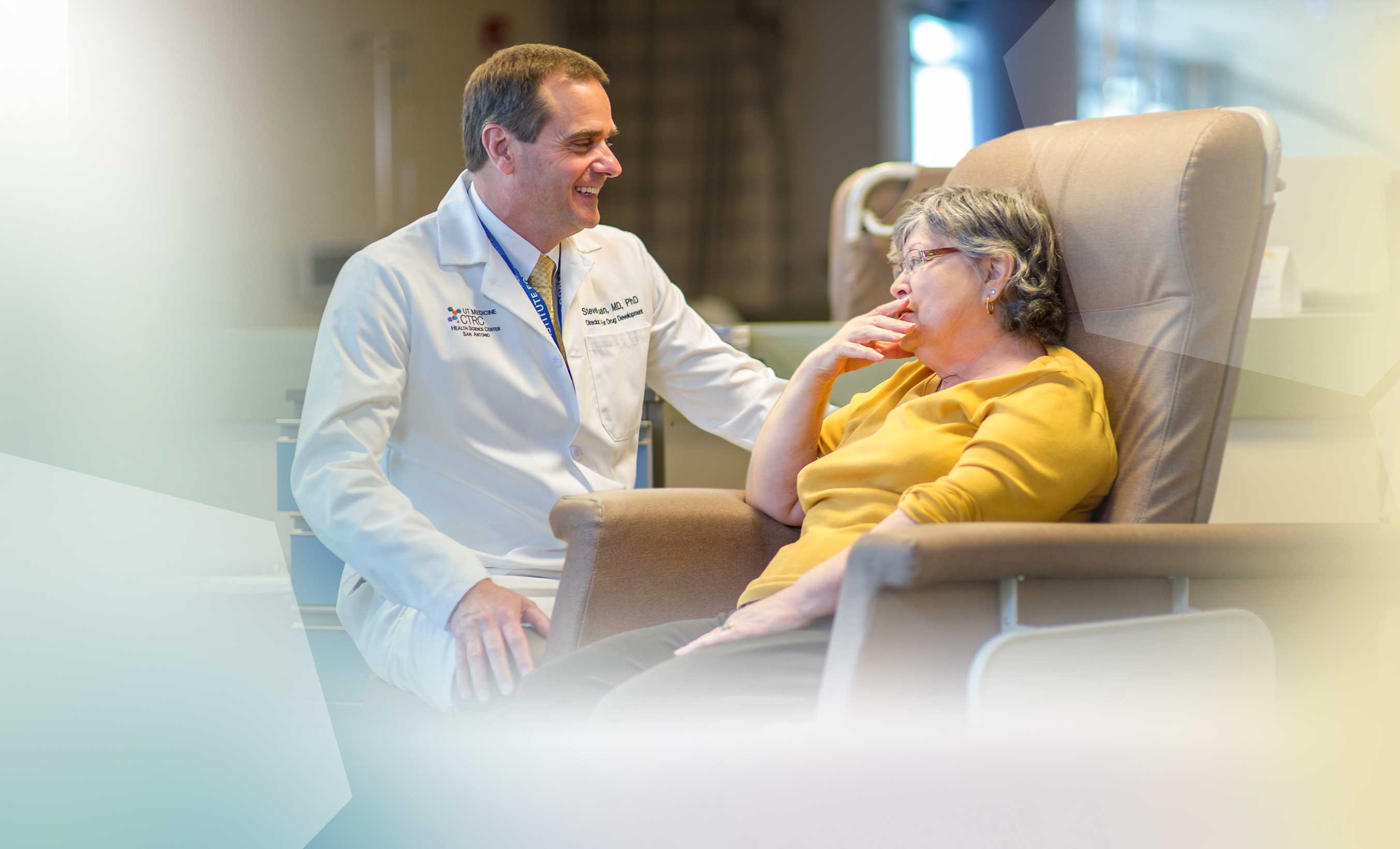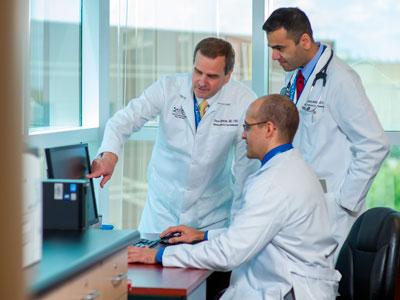Laeeq Malik, M.D., had completed his clinical training in oncology but wanted to know more about the development of the drugs he gives to patients. Alex Mejia, M.D., took a path from internal medicine through clinical pharmacology that led him to focus on oncology.
Each journey, beginning in Australia and the Dominican Republic, respectively, brought the young physicians into the Advanced Oncology/Hematology Drug Development Fellowship Program at the Cancer Therapy & Research Center, where they work with patients who’ve been told by their physicians that they’ve reached the limits of FDA-approved medical treatments.
Patients typically are not eligible for Phase I trials, where a drug is first tested in humans, unless they’ve tried every approved treatment. That means that, along with learning complex drug trial protocols, the fellows at CTRC are getting to know people who are in the fight of their lives.
Being a place that serves patients and develops new cancer drugs has given the CTRC the opportunity to train talented hematologists and medical oncologists from around the globe. The program, established in the late 1980s and operated through the CTRC’s Institute for Drug Development (IDD), offers oncologists a chance to work closely in the development of new cancer treatments, said Steven Weitman, M.D., Ph.D., IDD director.
“The work is very focused on the translation of ideas from the laboratory to the clinic,” Dr. Weitman said, “and on first-in-human clinical studies where study participants are the first people to get a new drug.”
More than 35 oncologists have completed the program and have taken their newfound knowledge around the globe. It’s one of the largest and best-established fellowships of its kind, Dr. Weitman said.
Weitman, a pediatric oncologist who works on the development of new therapies for adults and children, was a program director within IDD from 1996 to 2001 before returning to the IDD in 2011.
Testing a new cancer drug involves complex protocols in an intense regulatory environment designed to protect the patients and ensure the scientific rigor of the clinical trial. The fellows must learn how to determine the optimal dose and measure toxicity, the drugs’ effects on tumors, the level of the drug in the bloodstream and the regulatory process.
Then there are the patients.
“There’s a lot of stress that we must learn to deal with,” Dr. Mejia said. “There’s also an incredible satisfaction when we are able to pair a patient with the right drug that can help them.”
Learning to be better physicians
Dr. Weitman said working with a Phase I patient population is an important process for the fellows. “They learn not only how to be better physicians, but better individuals, with a greater understanding of what human beings are going through in that stage of their life.”
One young patient with a very aggressive bowel cancer had reached the point where he was given a choice: hospice or a clinical trial. He chose the clinical trial, traveling to San Antonio from Temple, Texas, for regular treatments to which he has responded well, with minimal side effects, for several months.
“He is always accompanied by a new family member when he comes for his treatment,” Dr. Malik said. “I’ve met his nephews, nieces, children, even neighbors and friends. I’ve pretty much met his whole family and everybody important to him.”
Understanding the patient’s family dynamic, Dr. Malik said, has enabled him to provide the patient better care.
So that’s what the IDD fellowship gives to the fellows. What do they give to us?
“These people are supercharged to make a difference, highly motivated to learn the process,” Dr. Weitman said. “They’re smart and talented, and the patients love them because they’re young and energetic.”
And some, like Devalingam Mahalingam, M.D., Ph.D., and John Sarantopoulos, M.D., have completed the fellowship and joined the faculty to take care of patients here, and to teach the next generation.
“They came in as young, naïve oncologists off the street, if you will,” Dr. Weitman said, “and now they’re giving back.”

